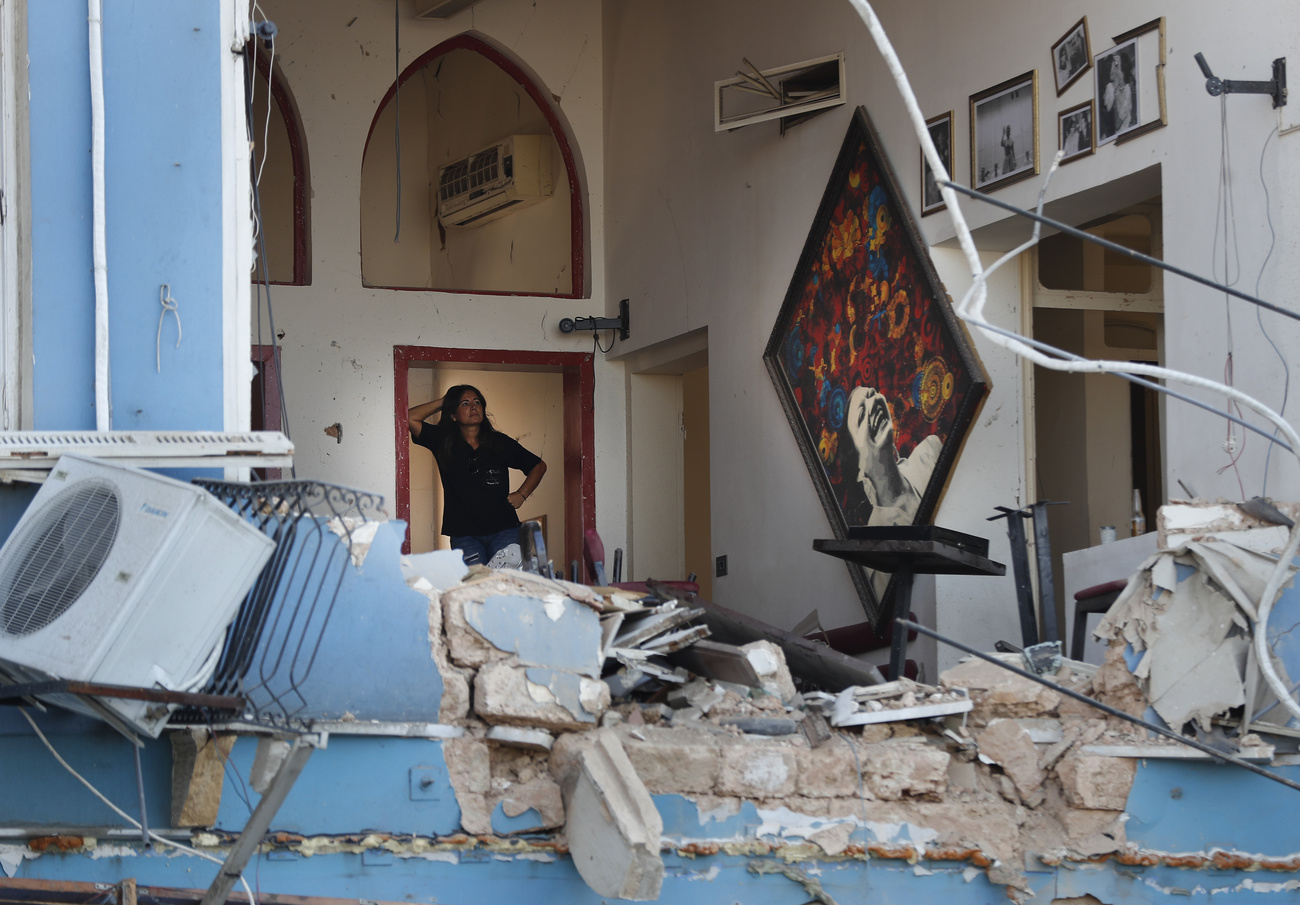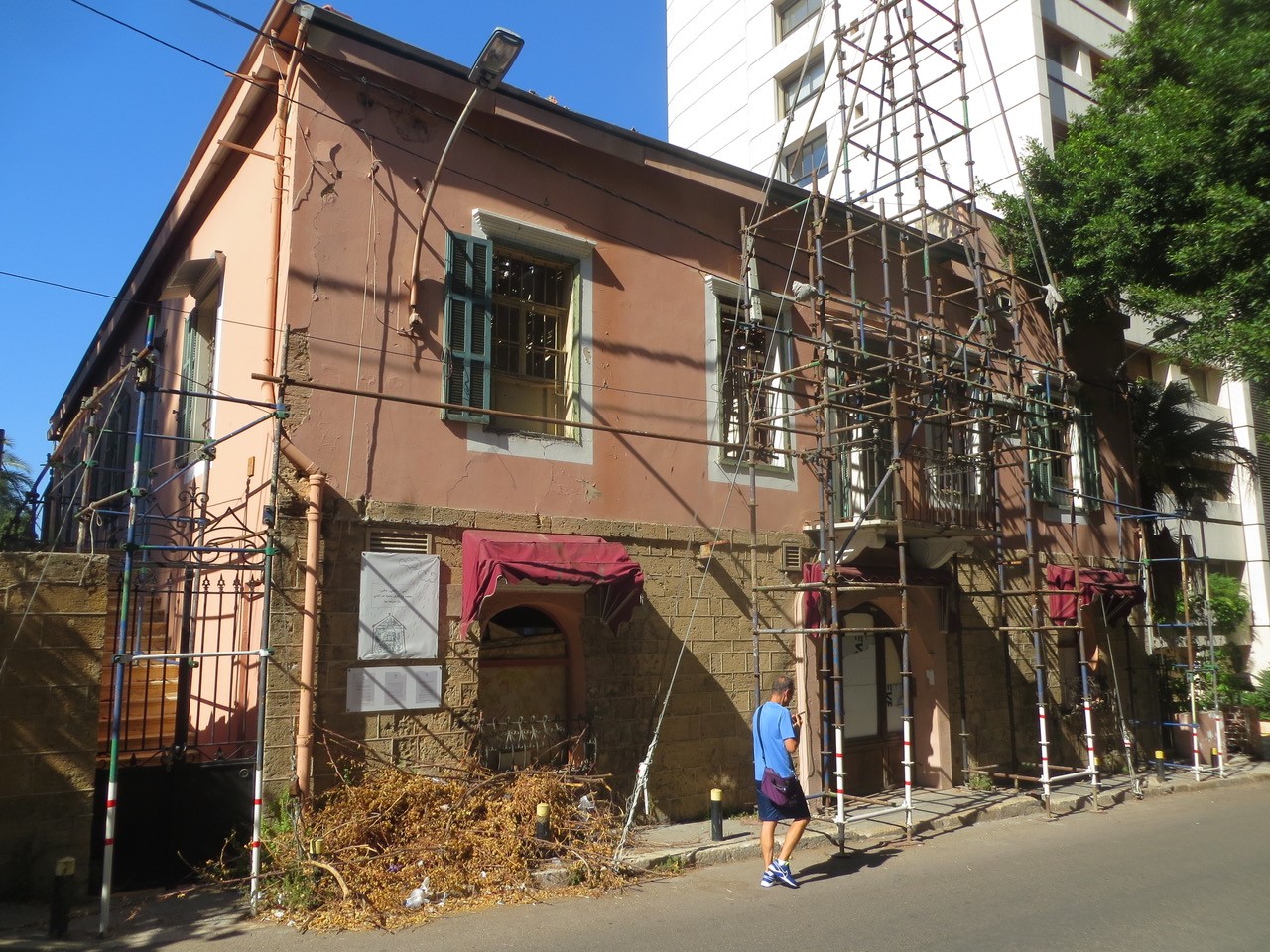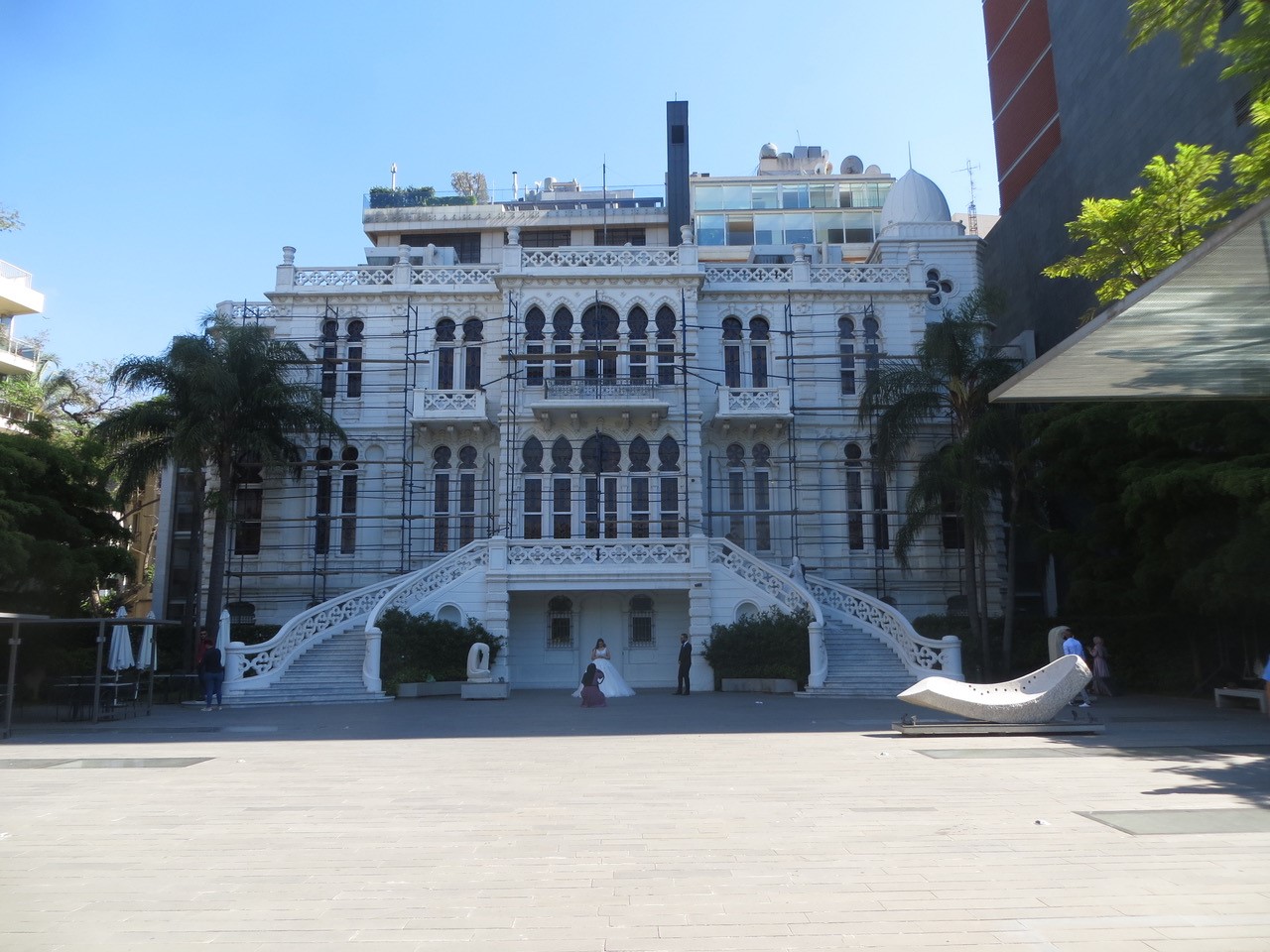
Swiss foundation helps safeguard historic buildings in Beirut

On August 4, 2020, an explosion in the port of Beirut did more damage in a few minutes than 15 years of civil war in Lebanon. Confronted with an increasingly failed state, citizens can count only on outside aid. In particular they look to a Geneva-based foundation.
The School of Three Doctors gets its name from the three patron saints of education in the Greek Orthodox Church: John Chrysostom, Basil the Great and Gregory of Nazianzus. At the time of its foundation in 1835 it was nicknamed “the big school” since it was the largest educational institution in Beirut.
“Because of Covid, the nursery closed early on that day, August 4, 2020. Fortunately there was no one in the building when it happened. The explosion caused the main structure to collapse. Everything went down,” recalls Nayla Daoun. She is the head of the school, which has 210 pupils of all religious denominations, including 20% with learning difficulties.
“Do you know who came first to inspect the damage – even before the Ministry of Education? Vincent Gelot, the head of l’Œuvre d’Orient in Lebanon,” she says in her completely renovated office. l’Œuvre d’Orient is a French association founded in 1856 to help Eastern-rite Christians.

L’Œuvre d’Orient received financial aid to rebuild the School of Three Doctors from the International Alliance for the Protection of Heritage in Conflict Areas (ALIPH), which was set up in Geneva in March 2017.
“ALIPH is made up of no more than a dozen people. Our mission is to be on the ground listening to the needs, identifying projects in countries which are experiencing conflict or crisis, like Lebanon, and arranging financial support for them. We are active in about 30 countries, supporting 150 projects,” Valéry Freland, executive director of ALIPH, told SWI swissinfo.ch.
Freland was previously a diplomatic adviser to the French Ministry of Culture and also served as consul general in Boston. Now he is in charge of implementation, strategy and management for this new international organisation.
Renovating a cathedral
ALIPH was started after a conference organised in Abu Dhabi in December 2016 on safeguarding endangered cultural heritage, organised by France, the United Arab Emirates and UNESCO, the UN’s cultural agency.
Recently, with the outbreak of the war in Ukraine, ALIPH has quickly come up with $2 million (CHF1.9 million) for urgent measures to safeguard heritage in that country, notably to get works of art into safe storage. In Lebanon, the foundation has been involved in 18 projects since 2020, investing $2.5 million.
It paid for the transport from Switzerland to Lebanon early this year of the archives of the archaeologist Maurice Dunand. They included photographs of the site of Byblos and academic correspondence. The thousands of original documents concerning archaeological excavations from 1926 to 1977 had been kept in the administrative and heritage archives at the University of Geneva.
In Lebanon itself, ALIPH is involved in the restoration of the Maronite Cathedral of Saint George, the Oriental Library at the Saint-Joseph University, and the Zahrat El-Ihsan school and orphanage. It is also working on the repair of roofs of historic houses in the Rmeil and Medawar districts.
Nothing works here anymore
Two years after the explosion at the port of Beirut, which killed 200 people and wounded 6,500, government seems hardly functioning in what used to be called the “Switzerland of the Orient”.
The streets of Beirut, Tripoli and Tyre are clogged with rubbish. Teachers earn only $50-$60 a month, the price of a tank of petrol. A surgeon barely makes twice that. As a result, managers, intellectuals and artists are fleeing Lebanon for the Gulf states, Europe and North America.
The head of Anta Akhi, a centre for young adults with disabilities also supported by l’Œuvre d’Orient, points out that the Lebanese government provides only 1% of the running costs of the institution. It depends on charity to keep feeding and caring for its charges.
The country has been unable to restore the thousands of houses and buildings devastated by the 2020 explosion, which started in a storage facility holding thousands of tonnes of ammonium nitrate, piled up without any safety precautions.
Endemic corruption
Without ALIPH, which has invested $500,000, little would remain of the Sursock Palace, whose roof was taken off by the explosion. Doors and windows were blown in, verandas and balustrades collapsed. Money from the Swiss foundation has ensured the building was at least made waterproof before the rainy season.

The palace, built around 1850 by Moussa Sursock, a tax collector under the Ottoman Empire, still belonged to the same family. Lady Yvonne Cochrane (née Sursock), died a few weeks after the explosion at the age of 98. Restoration of the palace is likely to take four or five years and cost €8-10 million (CHF7.8-9.8 million).
“It’s wonderful to be able to help restore historic buildings. But the problem is all the endemic corruption which rots the state of Lebanon,” notes Michel Al-Maqdissi, former director of the archaeological excavations and studies department at the Directorate-General of Antiquities and Museums in Syria. A museum asked ALIPH for €1 million, claiming to have suffered major damage. In fact, there were only a few broken windows. Valéry Freland, the director of ALIPH, foiled this attempted fraud by turning up at the site and seeing the state of the building for himself.
Translated from French by Terence McNamee/ts

In compliance with the JTI standards
More: SWI swissinfo.ch certified by the Journalism Trust Initiative

























You can find an overview of ongoing debates with our journalists here . Please join us!
If you want to start a conversation about a topic raised in this article or want to report factual errors, email us at english@swissinfo.ch.